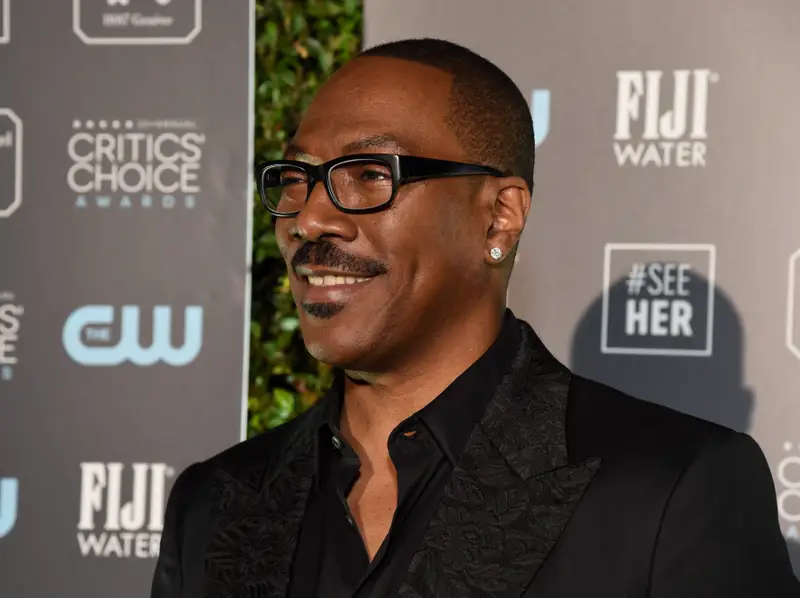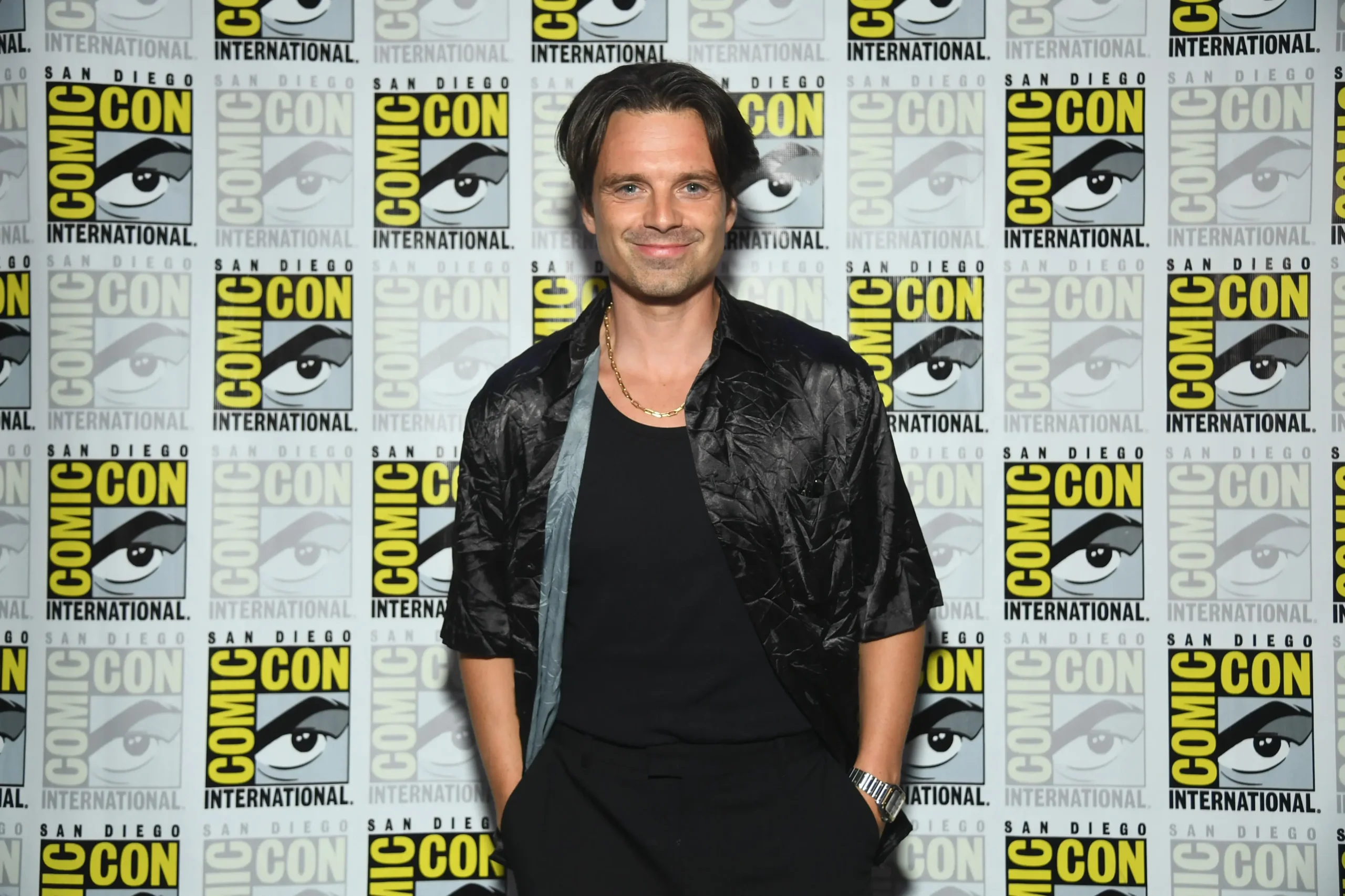A career that shaped modern comedy, redefined Hollywood stardom, and continues to influence generations
On April 18, 2026, Eddie Murphy will be honored with the 51st AFI Life Achievement Award, the American Film Institute’s highest accolade, delivered at the Dolby Theatre in Los Angeles. It is a moment that feels both ceremonial and inevitable: a celebration of a career that has re-written the rules of entertainment, carried entire eras of comedy on its back, and carved space for a new understanding of how Black performers could lead Hollywood on a global scale. For Murphy, whose work spans stand-up, television, film, voice acting, music, and cultural influence, the award is not just a lifetime milestone—it is a marker of American cultural history.
The ceremony arrives at a meaningful time. Murphy has re-energized his career in the last decade, reintroducing himself to audiences through revived franchises, sharp comedic roles, and a restored commitment to the kind of boldness that made him one of the most electrifying talents of the 1980s. As Hollywood reshapes itself, the AFI’s decision to honor Murphy underscores the ways his artistic innovations remain timeless, essential, and foundational.
This editorial reflects on the arc of Murphy’s legend: his ascent from prodigy to phenomenon, his imprint on American humor, his evolution as a filmmaker, and the deep cultural legacy that led to this 2026 recognition.
star
Eddie Murphy’s story begins in the late 1970s, long before Beverly Hills Cop or Shrek, when he was a teenager crafting stand-up sets that already carried the mark of someone incapable of being ignored. By 19, he had landed on Saturday Night Live, rescuing the show from a turbulent season and single-handedly resetting its comedic energy. Characters such as Gumby, Buckwheat, Mr. Robinson, and his fiery celebrity impressions revealed something unusual: Murphy didn’t imitate culture—he redirected it. His physicality, timing, and improvisation hinted at a performer in full command of the room, even before he’d turned 20.
Comedy in America has often followed generational torches. Richard Pryor had the 1970s. George Carlin shaped the 1980s. But Murphy managed something few could: a fusion of showmanship, theatricality, and youthful charisma that widened the scope of what stand-up and sketch comedy could look like. He was both politically sharp and wildly playful, capable of flipping a mundane anecdote into heightened absurdity, only to follow it with razor-edged commentary about race, power, or sexuality. It was this duality that marked Murphy as a performer destined for cinematic scale.
stir
Murphy’s transition to film remains one of the smoothest and most seismic in Hollywood history. 48 Hrs. (1982), his screen debut, paired him with Nick Nolte in a gritty buddy-cop thriller that instantly restructured Hollywood’s understanding of genre formulas. Murphy didn’t simply hold his own—he reinvented the dynamic entirely. Months later came Trading Places (1983), a high-concept social comedy that remains one of the most incisive class critiques ever produced by a mainstream studio.
Then came the era-defining explosion: Beverly Hills Cop (1984). It catapulted Murphy from rising star to global box-office phenomenon. Axel Foley became an archetype, a character who merged street-smart Detroit charisma with sharp detective instincts, creating a new model for action-comedy stardom. Importantly, Murphy wasn’t just starring in blockbusters—he was reshaping the industry. Studios began designing films around him, recognizing that his comedic presence had transformative commercial power.
By the mid-1980s, Murphy had become a singular cultural symbol: a Black actor leading Hollywood’s biggest hits, a comedian with the magnetism of a rock star, and a performer whose box-office impact challenged assumptions about what audiences wanted.
evolve
Murphy’s 1980s and 1990s output reveal an artist willing to expand into new creative dimensions. Coming to America(1988), which he co-wrote, allowed him to inhabit multiple roles in the same film—barbers, princes, preachers, soul-singers—executed with meticulous commitment. This shapeshifting ability became his signature, later reaching full expression in The Nutty Professor (1996), where he played an entire family of characters in a virtuosic comedic symphony.
He demonstrated equal talent for grounded, dramatic roles, as seen in Boomerang (1992), a film that reconfigured the romantic-comedy landscape by centering Black professionals in aspirational, stylish, and emotionally nuanced narratives. Murphy’s Ronny Romance persona, marked by sophistication rather than slapstick, revealed his range beyond the high-energy explosion audiences first fell in love with.
During this period, Murphy became a creative architect—producing, developing stories, guiding aesthetic directions, and shaping cultural images both in front of and behind the camera. Hollywood’s perception of what a comedian could be widened again.
discovery
By the late 1990s and early 2000s, Murphy’s career entered yet another reinvention. His voice performance as Donkey in Shrek (2001) cemented one of the most beloved animated characters in modern film history. The role showcased Murphy’s tonal dexterity—musical, emotive, comedic—and his ability to tap into childlike joy without sacrificing his signature edge.
The Shrek franchise introduced him to an entirely new generation, demonstrating that his comedic appeal transcended demographic boundaries.
Then came Dreamgirls (2006), a turning point not just for Murphy but for the industry’s understanding of his dramatic potential. As James “Thunder” Early, Murphy delivered a performance raw enough to earn him an Academy Award nomination, revealing a depth of vulnerability underneath the charisma. It remains one of the most critically acclaimed roles of his career.
influ
The significance of Eddie Murphy’s career cannot be measured solely through box-office totals or award nominations. His true legacy lies in how thoroughly he redefined comedic possibility.
Murphy’s comedic vocabulary—his cadence, improvisation, bravado, physicality, and command—became foundational influences for a lineage of modern performers: Chris Rock, Dave Chappelle, Kevin Hart, Tiffany Haddish, Donald Glover, and countless others who reference Murphy not as inspiration, but as origin.
Beyond comedy, Murphy’s career opened institutional doors across Hollywood. He was one of the first Black megastars whose leading roles were intentionally global, commercial, and universal—not framed by stereotypes but by personality, intelligence, and narrative charisma. He allowed studios to imagine Black-led franchises without hesitation, and he challenged racialized assumptions about who could anchor the world’s highest-grossing films.
His presence shifted the cultural landscape long before Hollywood began articulating inclusion initiatives. Murphy enacted representation simply by existing at the center of the frame.
why
Every AFI Life Achievement Award tells a story about Hollywood’s historical memory. To give Murphy the 2026 honor is to recognize not only his career’s longevity, but its transformational impact.
Murphy joins an elite lineage—past recipients include Jane Fonda, Sidney Poitier, Meryl Streep, Steven Spielberg, Denzel Washington, and Nicole Kidman. The award is reserved for individuals who have fundamentally shaped the moving image as an art form.
Murphy’s influence checks every box: innovation, legacy, impact, reinvention, artistic reach, cultural significance.
But his recognition in 2026 carries additional resonance. The entertainment industry is in a moment of self-reflection, grappling with the evolution of comedy, representation, and the tension between nostalgia and innovation. Murphy stands at the intersection of these discussions—an architect of past comedic eras who remains relevant in the present.
His recent projects, from Dolemite Is My Name (2019) to Coming 2 America (2021) and forthcoming films, demonstrate a performer not coasting on legacy but rewriting it. Murphy is in the midst of a late-career renaissance that mirrors the hunger and fearlessness of his early years.
The award is not a capstone—it is an affirmation of continued relevance.
leg
When Murphy walks onto the Dolby Theatre stage on April 18, 2026, the tribute will feel like a ceremony decades in the making. But it will also feel like a nod toward what remains ahead. Murphy has made it clear he still enjoys performing, still enjoys challenging himself, still enjoys being unpredictable.
If the AFI Life Achievement Award marks the canonization of an icon, it also signals a cultural invitation: to revisit Murphy’s earlier work with renewed appreciation, to recognize his foundational influence, and to anticipate what his next chapter might look like.
Murphy’s career has never been one of stagnation. It has been one of evolution—sometimes turbulent, always fascinating, and endlessly influential. As Hollywood continues to reshape itself, Murphy’s legacy serves not only as a historical benchmark but as a creative blueprint.
The 2026 AFI honor places him exactly where he belongs: in the highest echelon of American cinematic artistry, celebrated not just for what he has done, but for the impact that continues to ripple through modern entertainment.
Eddie Murphy didn’t just entertain us—he changed the possibilities of the screen itself.
No comments yet.








